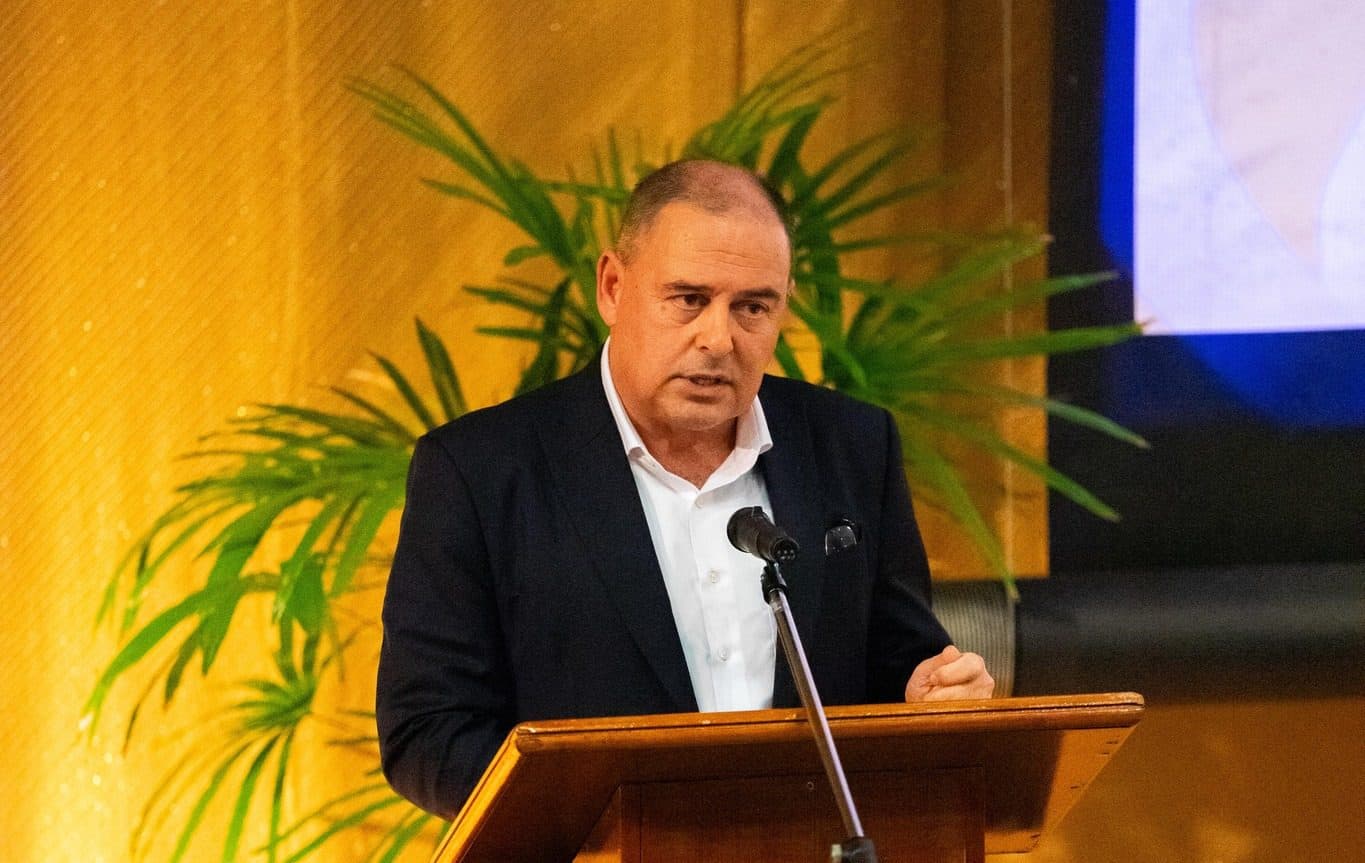The Chair of the Pacific Islands Forum and Prime Minister of the Cook Islands, Mark Brown, says there is an urgent need for Pacific leaders to relook at how they have been handling sustainable growth in their countries.
He was speaking at the 26th Pacific Islands Forum Economic Ministers Meeting (FEMM) in Fiji this week.
“We must ensure every effort is made to maintain our position of strength while also recognising the sovereignty of each member of the Forum,” said Brown.
“As a region, we can rise above these challenges by working together from our position of strength—as a collective. We are resilient, resourceful, and united in our determination to overcome these challenges and build a brighter future for our Pacific people.”
Brown recalled and reflected on the adoption of the 2050 Strategy for the Blue Pacific Continent, adopted by Forum leaders in July last year.
“The approval of the 2050 Strategy has been hailed as the ’North Star’ for the area since it lays out the ’long-term approach to working together as a region and as countries and territories, communities, and people of the Blue Pacific Continent’,” he said.
The core of the 2050 Strategy is that natural resources, particularly the ocean, will be leveraged and used to achieve economic success.
“We must face our most serious risks and complicated economic difficulties, such as climate change, rising sea levels, a rise in the frequency and severity of natural catastrophes, growing debt levels, global economic fragmentation, and geopolitical contestations.”
A return to economic growth in post COVID-19 era has been hampered by the war in Ukraine and its knock-on effects on oil and food prices.
Brown said it is unsurprising that the International Monetary Fund expects global growth to fall to 2.8% in 2023, down from 3.4% in 2022. Despite these unpredictable headwinds, most governments in the area have implemented financial, fiscal, and monetary policies to support their own economies.
A new and diversified range of solution-focused actions and projects has emerged throughout the Asia-Pacific area, where policies that promote inclusive economic growth, social inclusion, and climate-resilient development are becoming more interconnected than ever before.
Keynote speaker, Armida Salsiah Alisjahbana, Under-Secretary-General of the United Nations and Executive Secretary of ESCAP, said that by incorporating sustainability into policymaking decisions and accelerating green-blue public investment flows, several governments are embarking on creating opportunities for jobs and productivity gains.
“Several developing countries are expanding the use of sustainability-focused instruments to tap global and regional capital markets,” she said. “Promoting clean energy and climate adaptation financing safeguards communities from the existential threat of climate change.”
She stated social investments are being directed towards providing affordable healthcare and quality education while reducing multi-dimensional vulnerability as well as growth ambitions that are also being enhanced through strategic financing of sustainable multi-modal transport connectivity, ICT infrastructure investment, and water and sanitation provisioning.
Alisjahbana said the Asian region is advancing and fast-moving with the technological revolution, with change that is swift across several economies and that has the large-scale potential to advance the digital economy.
“Millions of consumers, including youth, are moving online for their daily needs, with the private sector investing to make digital solutions available and within reach,” she said.
“Digital solutions are rapidly pushing the advancement of youth entrepreneurship, including women’s entrepreneurship, access to finance, and accessibility of goods and services. The role of Fintech to increase access to financial services across developing economies, especially for financing of MSMEs, is noteworthy.”
Digitalisation processes are substantially bringing down financial transaction costs and raising efficiency gains with the use of technology, which could further support the development of the blue-green economy and opportunities to secure financing for climate action.
Meanwhile, there are opportunities for the Pacific to “leapfrog” learning from developing and emerging countries, including Asia, using the digital economy to influence innovation and the delivery of public services.
At the outset of the Forum Economic Ministers (FEMM) meeting, Forum Secretary-General Henry Puna acknowledged Vanuatu’s Minister for Finance and Economic Management, Johnny Rasou, for steering the ‘vaka’ in the past year. Vanuatu’s leadership over the past year had seen substantive progress in a range of ministerial decisions since last year’s FEMM.
“Without a doubt, our region faces numerous challenges, but it is also filled with immense potential,” said SG Puna. “This meeting provides us with a unique opportunity to consider and discuss pressing issues facing our region, chart a course for sustainable development, and foster stronger regional economic cooperation.”
The meeting has considered the shaping of the Implementation Plan of the 2050 Strategy for the Blue Continent, the review of regional architecture, the Pacific Roadmap for Economic Development, and other regional policies.
